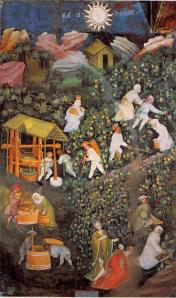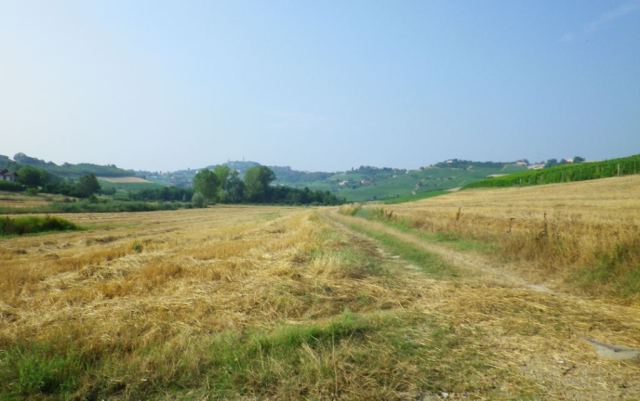December, I slouch in stupor
to your gates.
Throughout your days
my mind sows
sad seeds of death, sad seeds of death
Men and all things
cast on the ground
thin shadows, listless
But in your days,
foretold by phophets,
is born Christ the tiger
is born Christ the tiger
Original from Canzone dei dodici mese by Francesco Guccini
E mi addormento come in un letargo, Dicembre, alle tue porte,
lungo i tuoi giorni con la mente spargo tristi semi di morte, tristi semi di morte…
Uomini e cose lasciano per terra esili ombre pigre,
ma nei tuoi giorni dai profeti detti nasce Cristo la tigre, nasce Cristo la tigre…
Notes:
nasce Cristo la tigre. Is born Christ the Tiger. Guccini has already referred to the poet T S Eliot in the stanza for April “quali segreti scoprì in te il poeta che ti chiamò crudele”. Here he goes to Eliot’s Gerontion for inspiration.
“Swaddled with darkness. In the juvescence of the year
Came Christ the tiger”
Christ the tiger- an interesting image, and a uncommon one. We are more familiar with Christ as “the lamb of god”, sacrificial, meek. This lead me to a search for the sources of Eliot’s opposing image of Christ the tiger. The most obvious source is William Blake with his poems The Tyger and The Lamb . However, Eliot in writing about the nativity was also influenced by the writings of Bishop Lancelot Andrewes, Dean to the Chapel Royal of King James the First. The opening lines of Eliot’s coming of the Magi-
“A cold coming we had of it,
Just the worst time of the year
For a journey, and such a long journey:
The ways deep and the weather sharp,
The very dead of winter.”
come from Andrewes Nativity Sermon of 1622
“Last we consider the time of their coming, the season of the year. It was no summer progress. A cold coming they had of it at this time of the year, just the worst time of the year to take a journey, and specially a long journey. The ways deep, the weather sharp, the days short, the sun farthest off, in solsitio brumali”
Andrewes chastises his congregation for their laziness in approaching Christ,
“If rugged or uneven the way, if the weather ill-disposed, if any so little danger, it is enough to stay us. To Christ we cannot travel, but weather and way and all must be fair. If not, no journey, but still and see farther. As indeed, all our religion is rather vidimus, a contemplation, than venimus, a motion, or stirring to do ought.”
In then later in the same sermon we find
“We love to make no great haste. To other things perhaps not adorare, the place of the worship of God. Why should we? Christ is no wild-cat. What talk ye of twelve days? And if it be forty days hence, ye shall be sure to find His Mother and Him; she cannot be churched till then. What needs such haste?”
Christ is no wild-cat, no tiger. But only if religion is a contemplation rather than a motion.
I make no apology to any reader for quoting at length from Andrewes. He wrote at a time when a fire burnt in our language.











